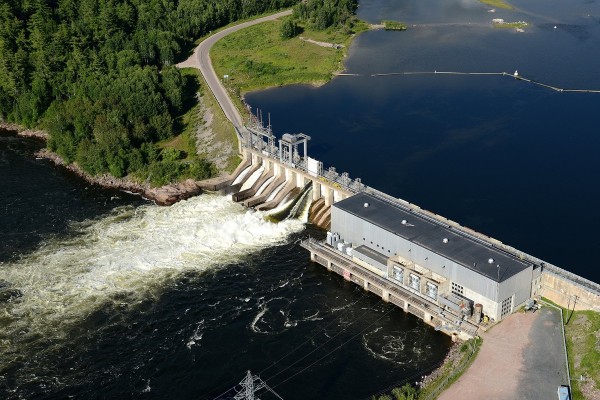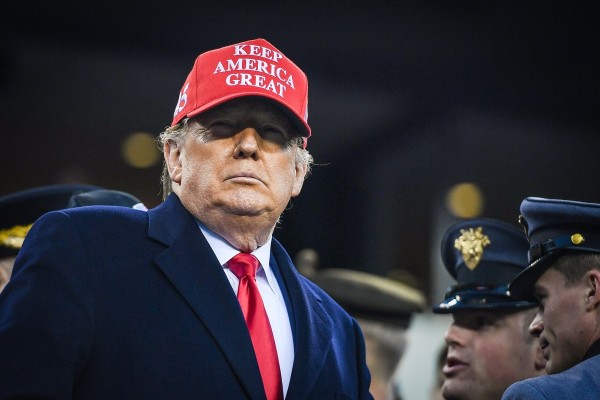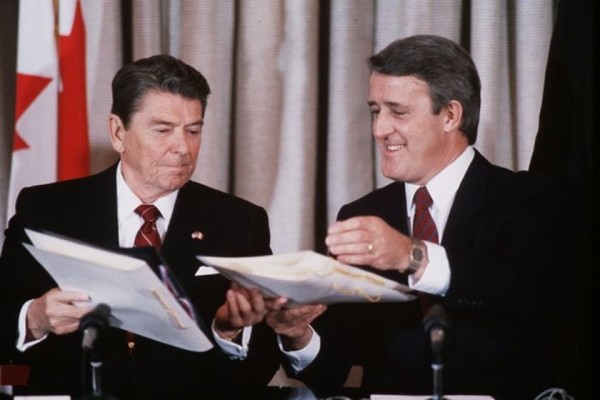-

Where does Danielle Smith’s loyalty lie?
Where do Danielle Smith’s loyalties lie? People asked this question after she revealed on MAGA-aligned media that she counselled Trump officials to pause the tariffs until after Canada’s federal election is over. Conservative Leader Pierre Poilievre is close to Trump’s agenda, she said, but the trade war is boosting Liberal support.
-

How Canada can reach energy autonomy
Whether Donald Trump’s tariffs remain for long, we must decouple our economy from the United States as much and as quickly as possible, writes political economist and University of Alberta professor emeritus Gordon Laxer. It will not be easy, but if we summon the resolve we showed in the Second World War, when we built whole industries from scratch, it can be done.
-

With Trump’s tariffs, it’s time for a more self-reliant Canada
By raising tariffs unilaterally, Trump will grossly violate USMCA, the former NAFTA. It’s no use doing deals with Trump, that he will break. Instead, let’s dust ourselves off and make things by Canadians for Canadians. Canada was tossed out of similar arrangements before. We picked ourselves up, became more self-reliant and thrived. Can we do so again?
-

Why seek closer economic ties with a US dictatorship?
The pandemic taught us the risk of relying on global supply chains. They are fragile and can be upset by political upheavals. Trump’s election upsets the apple cart. It’s time to recalibrate Canada’s place in the world. If we’ve lost one reliable friend, can we gain others? Will we take charge of our own economy so we can maintain democracy here?
-

Canada woefully unprepared for second Trump presidency
The existential question is whether democracy can thrive or even survive in Canada if Trump wins in November? As University of Alberta professor emeritus Gordon Laxer writes, Canada should prepare by becoming more economically self-reliant, deepening economic and political ties with other democracies, and allying with American opponents of dictatorship.
-

Mulroney: Not all good
Much deserved praise has been heaped on Brian Mulroney’s legacy, but the universal lauding of NAFTA misses the mark. Mulroney made major contributions by pushing Washington to cut acid rain wafting across the border, was key to fixing the ozone layer in the Montréal protocol and took international leadership in helping end apartheid in South Africa.
-

Public inquiry into foreign interference in elections should target Big Oil
Canada’s apex oil and gas lobby group may rue the day it made foreign-funded political meddling a public issue. For good reason, China’s election interference has sparked outrage in Canada. But China’s ability to sway a broad spectrum of Canadian voters is far weaker than the Canadian Association of Petroleum Producer’s foreign-funded political interference.
-

Foreign-influenced corporations must stop meddling in domestic affairs
The Canadian debate on foreign election meddling has focused almost exclusively on China. Some also want to investigate the interventions of other foreign governments. The foreign meddling debate in the United States is broader and encompasses powerful non-state actors, including foreign-influenced corporations. The debate in Canada needs to be broadened too.
-

Investigation needed into foreign election meddling
We need an independent public inquiry into foreign election meddling that goes beyond China. Powerful, non-government foreign entities, including foreign-influenced corporations, regularly intervene in our elections. Their meddling is more effective than China’s because they hire Canadian managers and seem Canadian. They know how to sway voters better than China’s operatives.
-

A contingency plan for the death of American democracy
Can democracy live on here if dictatorship fully wins the day south of the border? The biggest obstacle is what’s in our heads. It is ingrained among Canadians that the United States is our greatest friend and will always champion democracy. That can no longer be taken for granted. Can we pivot to seeing the US as our biggest potential threat?



